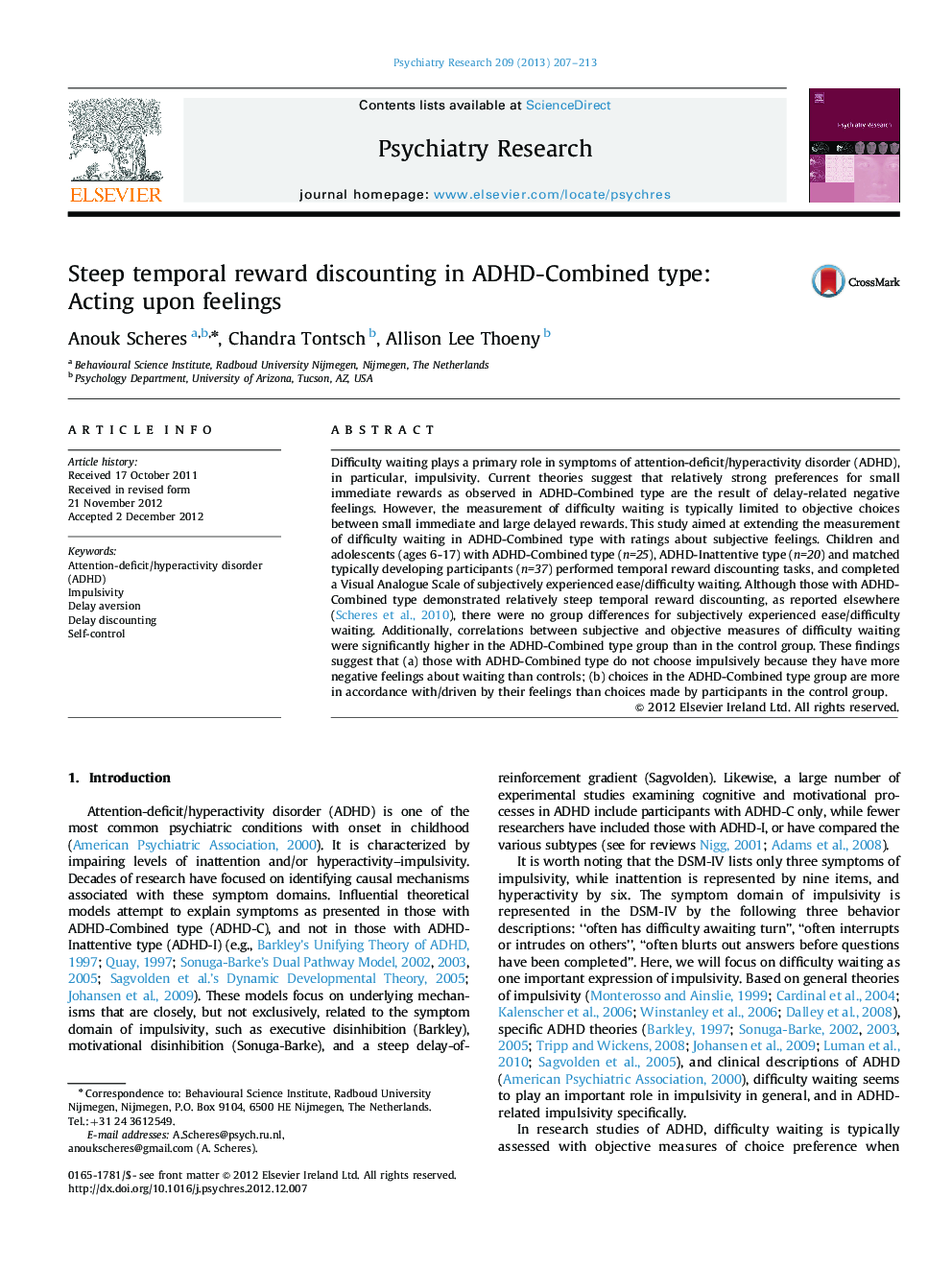| کد مقاله | کد نشریه | سال انتشار | مقاله انگلیسی | نسخه تمام متن |
|---|---|---|---|---|
| 332408 | 545695 | 2013 | 7 صفحه PDF | دانلود رایگان |

Difficulty waiting plays a primary role in symptoms of attention-deficit/hyperactivity disorder (ADHD), in particular, impulsivity. Current theories suggest that relatively strong preferences for small immediate rewards as observed in ADHD-Combined type are the result of delay-related negative feelings. However, the measurement of difficulty waiting is typically limited to objective choices between small immediate and large delayed rewards. This study aimed at extending the measurement of difficulty waiting in ADHD-Combined type with ratings about subjective feelings. Children and adolescents (ages 6-17) with ADHD-Combined type (n=25), ADHD-Inattentive type (n=20) and matched typically developing participants (n=37) performed temporal reward discounting tasks, and completed a Visual Analogue Scale of subjectively experienced ease/difficulty waiting. Although those with ADHD-Combined type demonstrated relatively steep temporal reward discounting, as reported elsewhere ( Scheres et al., 2010), there were no group differences for subjectively experienced ease/difficulty waiting. Additionally, correlations between subjective and objective measures of difficulty waiting were significantly higher in the ADHD-Combined type group than in the control group. These findings suggest that (a) those with ADHD-Combined type do not choose impulsively because they have more negative feelings about waiting than controls; (b) choices in the ADHD-Combined type group are more in accordance with/driven by their feelings than choices made by participants in the control group.
Journal: Psychiatry Research - Volume 209, Issue 2, 30 September 2013, Pages 207–213